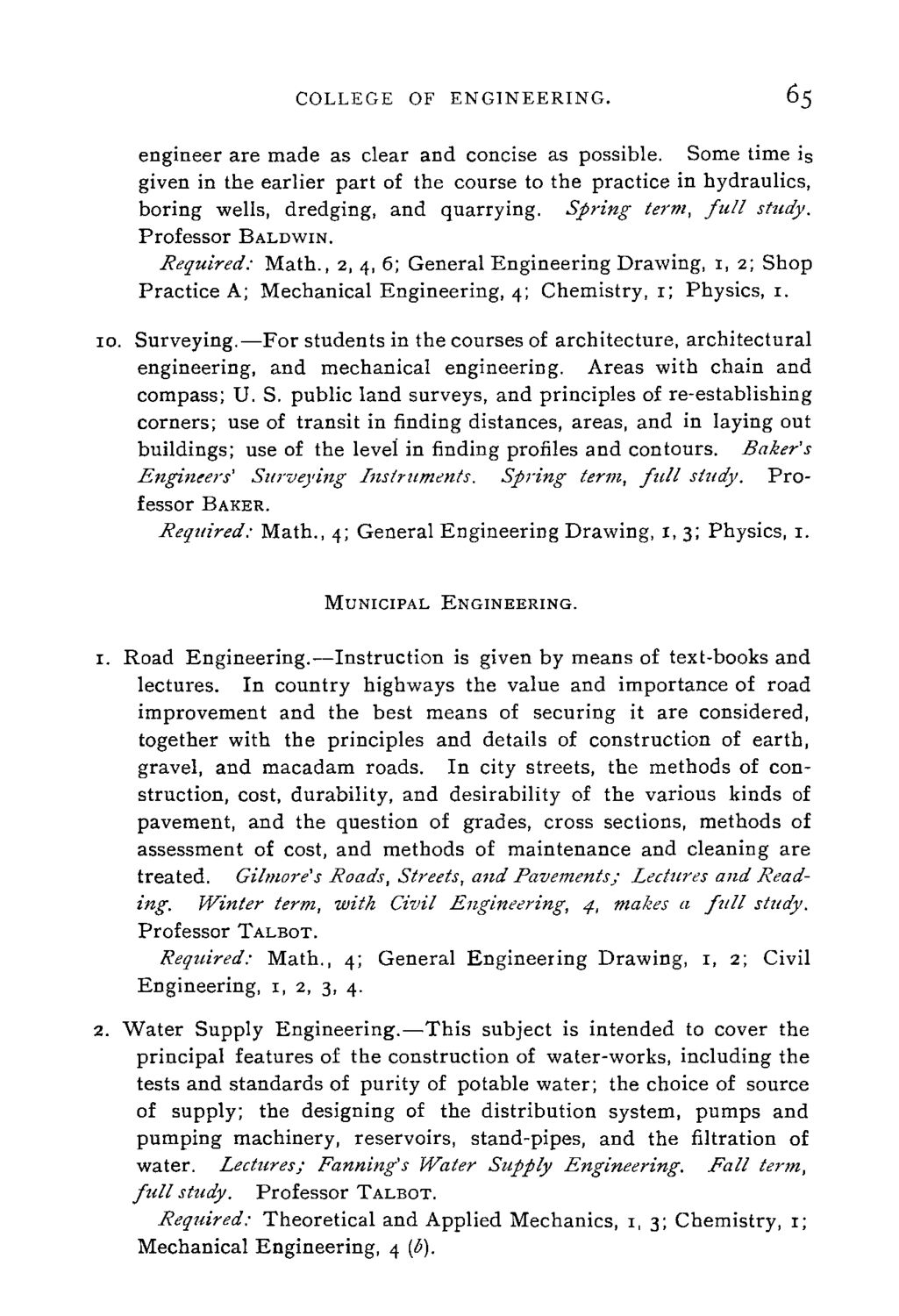| |
| |
Caption: Course Catalog - 1892-1893
This is a reduced-resolution page image for fast online browsing.

EXTRACTED TEXT FROM PAGE:
COLLEGE OF ENGINEERING. 65 engineer are made as clear and concise as possible. Some time is given in the earlier part of the course to the practice in hydraulics, boring wells, dredging, and quarrying. Spring term, full study. Professor BALDWIN. Required: Math., 2, 4, 6; General Engineering Drawing, 1, 2; Shop Practice A; Mechanical Engineering, 4; Chemistry, 1; Physics, 1. 10. Surveying.—For students in the courses of architecture, architectural engineering, and mechanical engineering. Areas with chain and compass; U. S. public land surveys, and principles of re-establishing corners; use of transit in finding distances, areas, and in laying out buildings; use of the level in finding profiles and contours. Baker's Engineers' Surveying Instruments. Spring term, full study. Professor BAKER. Required: Math., 4; General Engineering Drawing, 1, 3; Physics, 1. MUNICIPAL ENGINEERING. 1. Road Engineering.—Instruction is given by means of text-books and lectures. In country highways the value and importance of road improvement and the best means of securing it are considered, together with the principles and details of construction of earth, gravel, and macadam roads. In city streets, the methods of construction, cost, durability, and desirability of the various kinds of pavement, and the question of grades, cross sections, methods of assessment of cost, and methods of maintenance and cleaning are treated. Gilmore's Roads, Streets, and Pavements; Lectures and Reading. Winter term, with Civil Engineering, 4, makes a full study. Professor TALBOT. Required: Math., 4; General Engineering Drawing, 1, 2; Civil Engineering, 1, 2, 3, 4. 2. Water Supply Engineering.—This subject is intended to cover the principal features of the construction of water-works, including the tests and standards of purity of potable water; the choice of source of supply; the designing of the distribution system, pumps and pumping machinery, reservoirs, stand-pipes, and the filtration of water. Lectures; Fanning1 s Water Supply Engineering. Fall term, full study. Professor TALBOT. Required: Theoretical and Applied Mechanics, 1,3; Chemistry, 1; Mechanical Engineering, 4 (/>).
| |